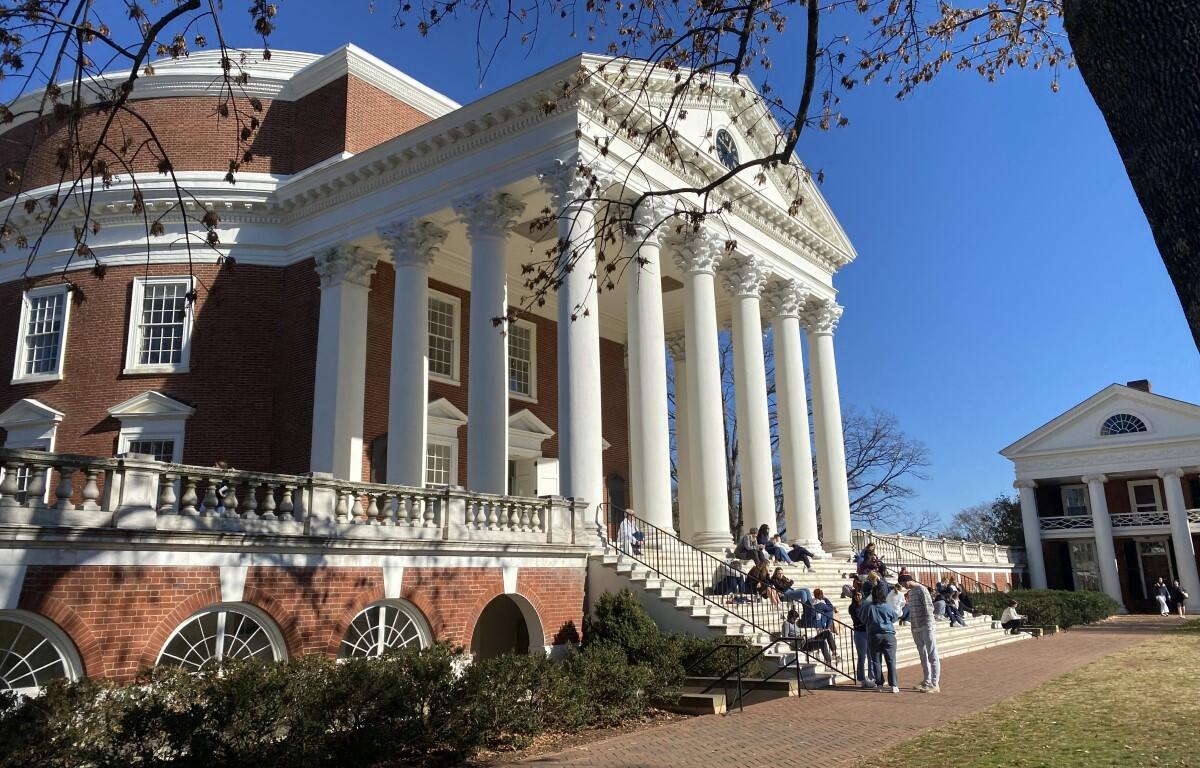CHARLOTTESVILLE (CVILLE RIGHT NOW) — The University of Virginia’s Special Committee on the Nomination of a President provided an update on the search to the Faculty Senate on Friday, along with a report from executive search firm Isaacson, Miller, which is assisting with the process, the school announced.
The update and report came after the conclusion of the first round of interview with candidates, which were held in private last week. The interviews were conducted in private to protect the confidentiality of the candidates, many of whom are in current leadership roles at other institutions. UVA Today added that the committee has additional steps to take before narrowing it can select its finalists, which will be presented to the Board of Visitors, according to the university’s release.
In a statement, the Special Committee acknowledged concerns regarding the “trust and transparency in the process,” but defended the confidentiality of the process, stating that the strongest candidates will only participate if their privacy is upheld.
“As a committee, we want to state unequivocally: This search has been conducted with rigor, fairness, and integrity thus far,” the committee wrote. “We would not lend our names or our service to a process that failed to meet those standards.”
Isaacson, Miller has repeatedly affirmed that the process and its timeline have been “entirely typical for a presidential search of this scale and caliber.” In its report, the search firm echoed the sentiment.
“The Special Committee has done its work on a classic search timeline,” the firm wrote, “in line with most university presidential searches, including the prior two UVA presidential searches.”
The firm also highlighted how the Special Committee has held over 40 different listening sessions, “consistent with classical search practice, though rarely at this scale,” and created a survey sent to UVA faculty, staff, students and alumni that received over 1,300 responses.
“The Special Committee’s collective effort to listen and learn led directly to the position profile,” the firm wrote, “which is a careful statement of UVA’s virtues and of the hard work a new president should undertake on behalf of the University.”
Earlier this month, after being elected as Virginia’s next governor, Democrat Abigail Spanberger sent a letter to the UVA BOV urging that body not to name a new president until after she had a chance to at least fill the five vacant seats currently on the board, if not make other changes. Spanberger takes office in January.
That drew a sharp rebuke from Virginia’s outgoing governor, Gov. Glenn Youngkin, who accused the Governor-elect of overstepping her bounds.
At the same time, former UVA president Jim Ryan sent a letter to the faculty senate, accusing new BOV rector Rachel Sheridan of orchestrating his ouster by conspiring – without the full board’s consent – with the Trump administration. That accusation further threw into question who Spanberger might be willing to keep on the board once she takes office.



